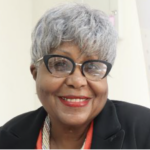Merely a third of students attain the qualifications in secondary school needed for further learning advancement, a senior UNICEF official said Friday, blaming inadequate early childhood support for severely hampering educational progress across the Eastern Caribbean.
Appearing at a panel discussion at the University of the West Indies Cave Hill, Jean-Benoit Mahnes, the UN children’s agency’s acting representative for the Eastern Caribbean, underscored the region’s disappointing secondary school performance and emphasised the need to redefine success beyond traditional professions.
“In the region, not just Barbados, too few students are achieving good enough results at the secondary level,” Mahnes said. “Additionally, the parameters of success can be too narrowly defined – it’s not only about becoming a lawyer or doctor. Society needs people with diverse skills and aspirations. We know that we need to do better, and we know we can do better.”
Mahnes painted a stark reality of the state of Caribbean education at the forum, where regional experts called for urgent reforms to address early learning deficits, destigmatise learning disabilities, and integrate technology into classrooms.
More needs to be done to challenge the status quo in education and tackle systemic issues head-on, the experts agreed at the UNICEF Eastern Caribbean/Barbados National Students’ Council (BNSC) #ActivateTalk event.
The forum, themed Navigating the Challenges of Higher Education in the Eastern Caribbean and the Importance of Regional Integration as a Viable Solution, examined critical barriers within the region’s education systems.
Mahnes also called for the democratisation of educational technology and greater collaboration across Caribbean nations while ensuring cultural contexts shape education policies.
“Can we access technology in a way that can be democratised? What role does educational integration and standardisation play? We want all children to have the same chance, whether they’re in Barbados, Saint Lucia, or Grenada while avoiding a one-size-fits-all approach. Culture, perspective, and environment must inform education systems,” he said.
Carina Blache, president of the Grenadian Students’ Association at Cave Hill (GRENSAC), highlighted a persistent undervaluation of early childhood education and the stigma surrounding learning disabilities.
“There needs to be more training for professionals to support early childhood development,” she said. “We also need to destigmatise learning disabilities. Many students struggle because of undiagnosed conditions like ADHD or dyslexia, but fear of derogatory labelling often prevents families from seeking help. Early intervention is essential for addressing these barriers.”
Kalan Alleyne, vice president of the Barbados National Students’ Council (BNSC), proposed integrating mandatory mental health and learning disability screenings into public health policies for primary school admissions.
“For me, the same way how when you are entering secondary schools you have to get your [vaccine] injections to ensure you can enter the school, it’s the same for when you enter a primary school. You should be able to go to the same polyclinics, get a diagnosis for a mental disability or a learning challenge, to ensure that the school then [can] cater to your needs, and you are taught the way that is best for you,” Alleyne said.
The panellists collectively emphasised the urgency of comprehensive reforms to address these challenges and empower the next generation with equitable educational opportunities.
The post Only one in three students gains key secondary certificates – UNICEF appeared first on Barbados Today.


